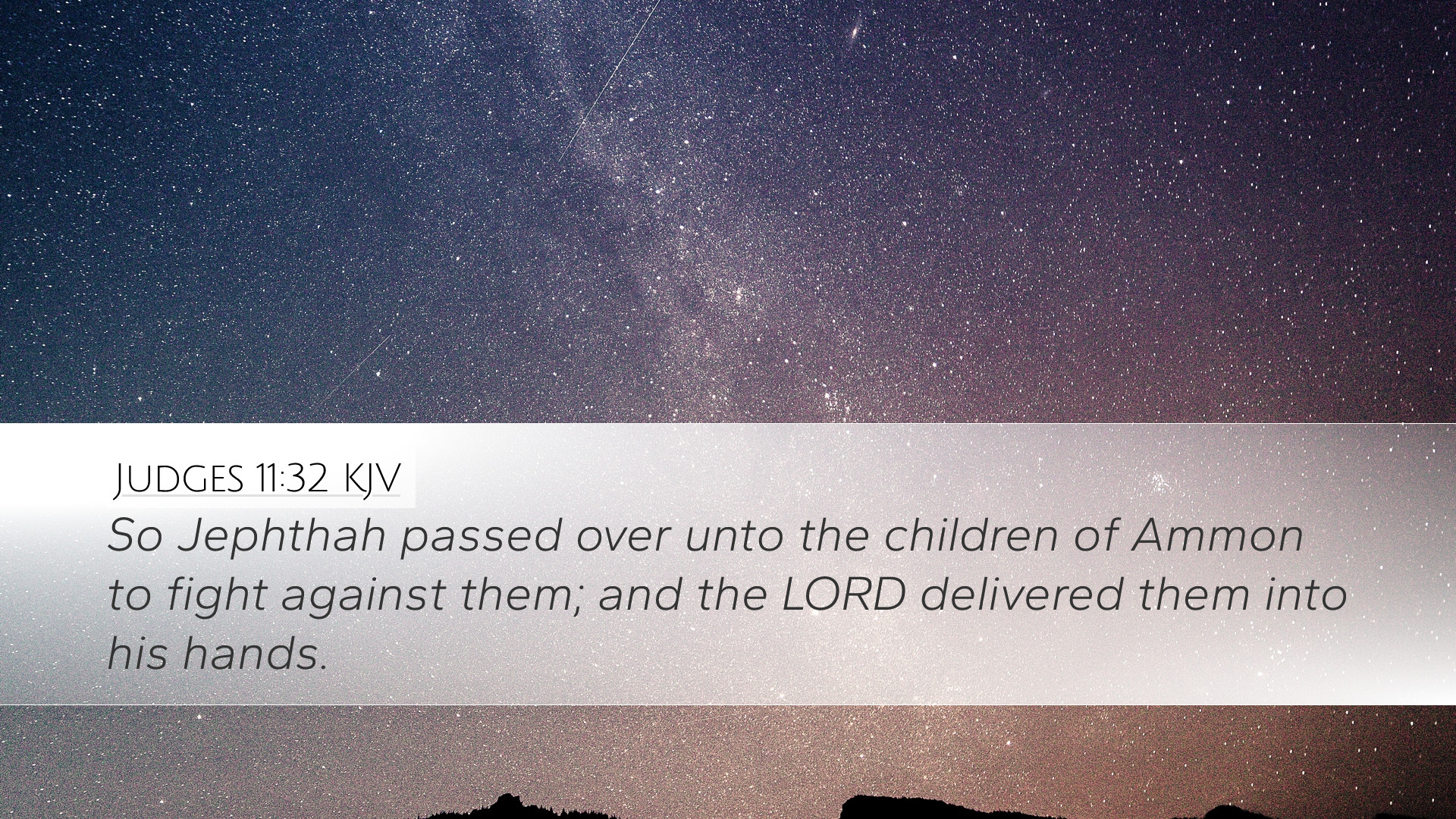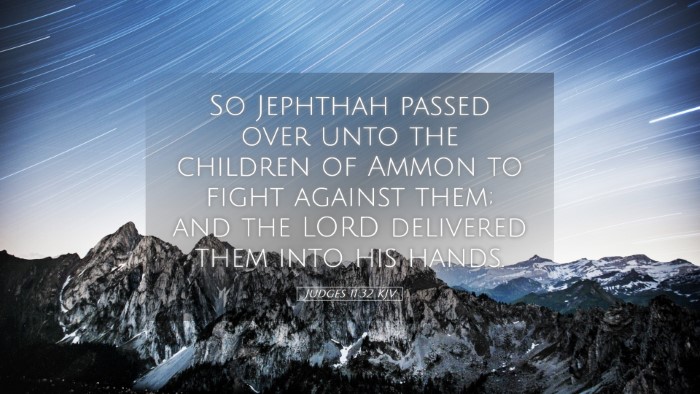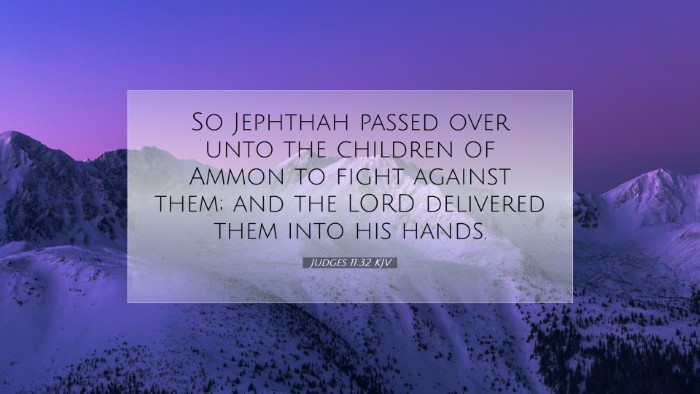Commentary on Judges 11:32
Judges 11:32 states, "So Jephthah crossed over to the people of Ammon to fight against them, and the Lord delivered them into his hands." This verse, while succinct, is laden with theological and historical significance. Commentators have explored its implications for the understanding of divine sovereignty, human agency, and the complexities of covenant relationships in the Old Testament.
Contextual Overview
This chapter of Judges introduces Jephthah, a judge of Israel renowned for his formidable leadership in battles against Israel's foes. The historical context is marked by Israel's repeated cycles of sin, oppression, repentance, and deliverance. Jephthah, having been rejected by his own family, emerges as a paradoxical figure wielding both the burden of exclusion and the mandate of divine deliverance.
Theological Significance
- God’s Sovereignty: The phrase "the Lord delivered them into his hands" underscores a critical theme of divine intervention. Albert Barnes emphasizes that despite Jephthah's past and the dubious means by which he gained his power, God was still able to use him as an instrument of deliverance. This serves as a reminder that God can work through imperfect vessels, a sentiment echoed by Matthew Henry.
- Human Agency: Jephthah's crossing over the Ammonites exemplifies the cooperation between divine providence and human action. Adam Clarke notes that though God prepares the way, it is the responsibility of leaders to act decisively in faith. Jephthah’s initiative is pivotal, indicating the necessity of human involvement in God’s redemptive history.
- Conflict and Resolution: The conflict with the Ammonites reflects the ongoing struggles faced by Israel. This battle symbolizes the larger spiritual warfare that God's people endure, as articulated by various commentators. Understanding this conflict helps readers apply the lessons of faith and reliance on God even during daunting circumstances.
Character Study: Jephthah
Jephthah is a complex character whose story illustrates themes of leadership, redemption, and the consequences of vows. While often associated with his controversial vow regarding his daughter (Judges 11:30-31), it is essential to consider his capability as a military leader as established in this verse.
- His Rise to Leadership: Jephthah's rise from an outcast to a leader of Israel reflects themes of restoration and purpose. As noted by Matthew Henry, the "wronged" can become the "righteous," brought back into fold to fulfill God's plans.
- Qualities of a Leader: Jephthah embodies qualities such as bravery and decisiveness. His willingness to engage in battle represents a pivotal moment where faith is put into action. This characteristic, underlined in Adam Clarke's writings, echoes the call for modern leaders to respond to God’s prompts with courage.
Practical Applications
The lessons from Judges 11:32 extend beyond the historical narrative to offer practical applications for contemporary faith communities. As students of Scripture and practitioners of faith, believers can draw several insights:
- Faith in Action: Just as Jephthah took decisive action in faith, modern believers are called to act on their faith, relying on God's guidance even in seemingly insurmountable circumstances.
- God's Use of the Unlikely: This passage encourages individuals who feel unworthy or inadequate. God’s capacity to use anyone for His will serves as a reminder of His grace and favor, breaking societal norms and expectations.
- Importance of Leadership: The call for leaders to be faithful, courageous, and responsive is ever pertinent. Jephthah's example serves as a benchmark for assessing the qualities that should characterize leaders within the church.
Conclusion
Judges 11:32 is a rich text that invites deep reflection on the interplay of divine providence and human effort. By studying Jephthah's journey and the context of his battle against the Ammonites, scholars and believers alike can glean timeless truths about God's faithfulness and the nature of true leadership.


